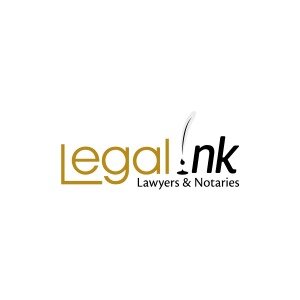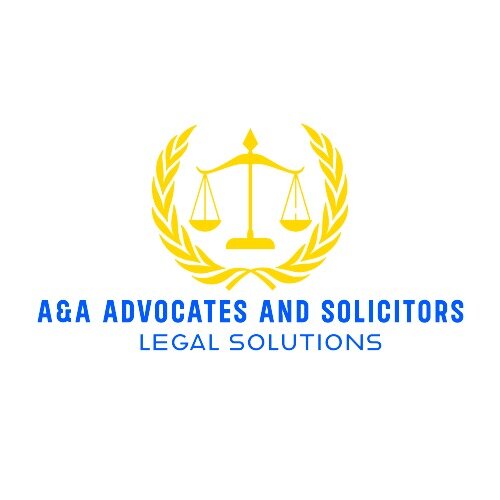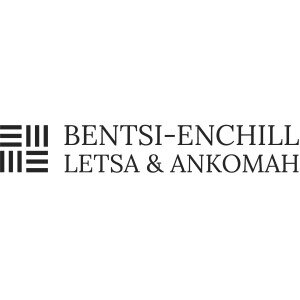Best Commercial Real Estate Lawyers in Ghana
Share your needs with us, get contacted by law firms.
Free. Takes 2 min.
Free Guide to Hiring a Real Estate Lawyer
Or refine your search by selecting a city:
List of the best lawyers in Ghana
About Commercial Real Estate Law in Ghana
Commercial real estate law in Ghana governs the legal frameworks, transactions, and use of land and properties for business purposes. The sector plays a vital role in the country's economic development by enabling business operations in various industries. Ghana's real estate landscape is characterized by a mix of traditional practices and modern legal systems aimed at regulating transactions, development, leasing, and ownership of commercial properties. The laws cover diverse areas such as property acquisition, land use planning, financing, leases, and construction, ensuring orderly development and legal compliance in commercial activities.
Why You May Need a Lawyer
Engaging a lawyer is crucial in the realm of commercial real estate for several reasons. Here are some common situations where legal assistance may be required:
- Property Acquisition: Lawyers help navigate the complexities of purchasing commercial properties, ensuring due diligence and compliance with legal stipulations.
- Lease Agreements: Whether you are a landlord or tenant, a lawyer can review or draft lease agreements to safeguard your interests.
- Dispute Resolution: Real estate transactions occasionally lead to disputes over property rights, boundary conflicts, or breach of contract, where legal representation is essential.
- Development Projects: Real estate development involves permissions, zoning laws, and environmental regulations, where legal guidance ensures adherence to local regulations.
- Financing: Lawyers assist in structuring mortgage loans and other financing methods that align with Ghanaian laws.
Local Laws Overview
Commercial real estate operations in Ghana are dictated by various local laws and regulations. Here are some key aspects to be aware of:
- Land Title Registration Law: The registration of all land transactions is mandatory to establish legal ownership and prevent land disputes.
- Property Rates and Taxes: Owners of commercial properties must comply with the payment of rates and property taxes, which are crucial for local revenue.
- Zoning and Land Use Regulations: These regulations dictate the types of activities that can be performed on a plot of land, impacting business operations and development projects.
- Environmental Management: Compliance with environmental laws and policies is essential in ensuring sustainable real estate development.
- Building Codes and Standards: Adhering to Ghanaian building regulations is mandatory for construction projects to ensure safety and structural integrity.
Frequently Asked Questions
What is the process for registering a commercial property in Ghana?
The process includes conducting a title search, preparing the necessary documents, submitting the application to the Lands Commission, and paying the required fees. Upon approval, the property is registered and issued with a title certificate.
Can foreigners own commercial real estate in Ghana?
Yes, foreigners can own commercial real estate in Ghana through leases. The maximum lease period for foreigners is typically 50 years, subject to renewal.
How do zoning laws affect commercial real estate?
Zoning laws restrict or permit specific uses of property within certain areas, impacting the type of business you can operate on a property. It's essential to ensure the property is zoned for your intended commercial use.
What taxes are applicable to commercial real estate transactions?
Transactions may incur taxes such as the capital gains tax, stamp duty, and property tax. These taxes depend on the nature of the transaction and property involved.
What should I consider when leasing commercial property?
Key considerations include the lease term, rent reviews, renewal options, repair obligations, permitted use, and exit clauses. Legal advice ensures these terms align with your business needs.
Are there restrictions on property development in Ghana?
Yes, developers must adhere to local building codes, seek planning permission, and comply with environmental regulations to mitigate the impact on the surroundings and ensure safety.
How can I resolve a property-related dispute?
Dispute resolution methods include negotiation, mediation, arbitration, and litigation. Engaging a lawyer can help assess the best approach depending on the circumstances.
What are the risks of purchasing unregistered land?
Purchasing unregistered land poses significant risks, including unclear title ownership and potential legal disputes. It’s advised to verify land registration before proceeding with transactions.
Are there incentives for investing in commercial real estate?
The government provides various incentives, such as tax breaks and investment guarantees, particularly for projects that align with national development goals or are in priority sectors.
How important is due diligence in commercial real estate transactions?
Due diligence is vital in identifying potential legal, financial, and physical issues with the property. It ensures informed decision-making and minimizes transaction risks.
Additional Resources
For more information and assistance, consider reaching out to the following resources and organizations:
- Lands Commission: The governmental body responsible for land administration and registration.
- Ghana Investment Promotion Centre (GIPC): Offers information and support for real estate and other investments.
- Real Estate Developers Association of Ghana (REDAG): Provides networking opportunities and information for developers.
- Ministry of Works and Housing: Oversees policies related to housing and construction standards.
Next Steps
If you need legal assistance in commercial real estate, here are some steps to consider:
- Research: Gather as much information as possible about the specific legal issues or transactions you are involved in.
- Consult a Lawyer: Engage a lawyer specializing in commercial real estate to discuss your situation and provide tailored legal advice.
- Documentation: Ensure all paperwork and documentation are in order, including agreements, permits, and correspondence related to the property.
- Due Diligence: Conduct thorough checks and balances to verify the legitimacy and legal standing of transactions or development plans.
Lawzana helps you find the best lawyers and law firms in Ghana through a curated and pre-screened list of qualified legal professionals. Our platform offers rankings and detailed profiles of attorneys and law firms, allowing you to compare based on practice areas, including Commercial Real Estate, experience, and client feedback.
Each profile includes a description of the firm's areas of practice, client reviews, team members and partners, year of establishment, spoken languages, office locations, contact information, social media presence, and any published articles or resources. Most firms on our platform speak English and are experienced in both local and international legal matters.
Get a quote from top-rated law firms in Ghana — quickly, securely, and without unnecessary hassle.
Disclaimer:
The information provided on this page is for general informational purposes only and does not constitute legal advice. While we strive to ensure the accuracy and relevance of the content, legal information may change over time, and interpretations of the law can vary. You should always consult with a qualified legal professional for advice specific to your situation.
We disclaim all liability for actions taken or not taken based on the content of this page. If you believe any information is incorrect or outdated, please contact us, and we will review and update it where appropriate.
Browse commercial real estate law firms by city in Ghana
Refine your search by selecting a city.

















